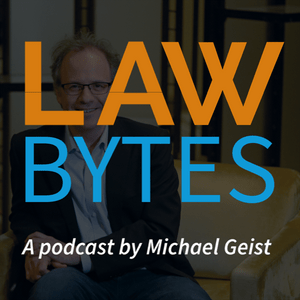No advertising. More Prime.
No advertising. More Prime.
No advertising. More Prime.
No advertising. More Prime.
The podcast starts in
- 0 sec.
Episode 258: Jaxson Khan With an Insider Perspective on AI Policy Development in Canada
Episode 257: Lisa Given on What Canada Can Learn From Australia’s Youth Social Media Ban
Episode 256: Jennifer Quaid on Taking On Big Tech With the Competition Act's Private Right of Access
The Law Bytes Podcast, Episode 255: Grappling with Grok - Heidi Tworek on the Limits of Canadian Law



Law Bytes